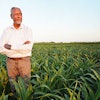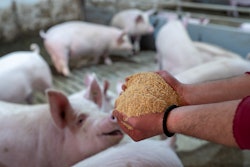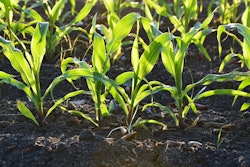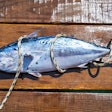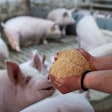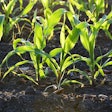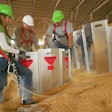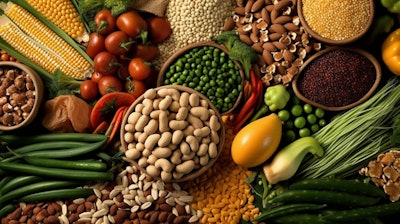
U.S. federal investigations revealed that selling non-organic grains and oilseeds as organic can lead to tens of millions of dollars in fraudulent sales within a few months. This imposter organic grain usually ends up as livestock feed to produce organic meat or eggs.
The organic label is the fastest growing label in the U.S. food industry and organic fraud is a deterrent and offense to those who work to assure organic integrity, explained Joelle Mosso, senior director of technical and regulatory affairs for theOrganic Trade Association (OTA).
“The overwhelming majority of organic farmers, distributors and other stakeholders in the organic supply chain work hard to adhere to the federal organic regulations, and fraud in the organic system is not very prevalent,” Mosso said. “But that said, fraud anywhere and of any magnitude in the organic supply chain is not acceptable.”
While fraudulent sales of non-organic grains claiming to be organic certified isn’t widespread, there have been some high-profile cases over the past several years with imported corn and soybeans and domestically grown wheat.
“[Those cases received] much media coverage, which in fact, helped spur efforts by the industry and USDA to take stronger action to prevent and detect fraud in the global organic supply chain,” Mosso said.
One of those cases involved two farmers in Jeffers, Minnesota, who were charged withconspiring to defraud grain purchasers out of $46 millionby selling grains falsely labeled as organic between 2014 and 2020.
News of acomplex large-scale organic schemebroke in 2018, involving several farmers and businessmen from Missouri and Nebraska who falsely marketed $142 million worth of corn, soybeans and wheat as certified organic grains. Prosecutors said the fraudulent sales went on from 2010 to 2017 and deceived consumers nationwide.
Thevictims named in this caseincluded food companies and their customers, who paid a premium for grains they thought were grown using environmentally sustainable practices. In other cases, fraudulent organic grain is consumed as feed in organic meat and egg production, which can carry devastating economic consequences.
Economic consequences for livestock producers
There are serious penalties for livestock or egg operations that use fraudulent organic materials, either unknowingly or knowingly.
“If an operation of organic livestock unknowingly purchased fraudulent organic feed, that operation will work with its organic certifier and the National Organic Program to determine next steps,” Mosso said. “Those animals that were fed non-organic feed could be taken out of organic certification and thus go into conventional streams.
“That might be permanent, or it might be for a certain period, but the bottom line is the impacted animals would lose organic certification status for some duration, which would have detrimental economic impacts on the organic operation,” she concluded.
Knowingly using non-organic grain would rescind organic certification and lead to significant civil penalties and financial fines.
New rule takes aim at organic fraud
The USDA plans to impose new regulations on food producers and handlers under theStrengthening Organic Enforcement (SOE)rule, designed to reduce fraudulent schemes involving non-organic products sold as organic.
The final rule from UDSA was published in January 2023 and is one of the biggest changes to organic products oversight in decades. The rule will be implemented in March 2024.
The Organic Trade Association was a leading advocate of stronger organic enforcement and led the charge to authorize USDA to create more robust organic regulations for the global supply chain.
“As demand for organic has soared over the past couple decades, domestic production of organic has not kept up, so more organic grain is now being imported,” Mosso said. “A global supply chain is understandably more challenging to oversee and police; that is why it was necessary for the USDA to adopt the new SOE rules, which closes enforcement loopholes in the global supply chain.”
美国农业部的SOE规则将更容易for organic feed, meat and egg producers to ensure the grain and oilseeds from their suppliers is certified organic.
“A critical piece to assuring organic integrity and meeting the new Strengthening Organic Enforcement rule is having a clear understanding one step up and one step down your operation,” Mosso said. “Effectively, that means knowing your supply chain and your customers well enough to assure that they will maintain the organic status of your product. Certified entities are now also required to complete a fraud prevention plan as part of their Organic System Plan.”
Organic grain fraud prevention plans
Fraud prevention plans are a systematic, risk-based approach to evaluating where risks might be in the supply chain and implementing mitigations to reduce those risks. OTA developed anOrganic Fraud Prevention Solution (OFPS) resourceto aid the industry in learning how to develop a robust, dynamic fraud prevention program.
“The OFPS incorporates educational training courses and a comprehensive guide that assists members to learn how best to structure and manage an organic fraud prevention plan within their Organic System Plan,” Mosso said. “OTA has also built a set of trusted advisors that are trained in OFPS to provide expert assistance to organic operations as they navigate this new requirement and build robust organic supply chains.”
Mosso said the development of SOE came about from the OTA’s efforts around the 2018 Farm Bill to assure that the organic regulation would be strengthened, and OTA continues to build upon this success with further effort to add funding and programs to support the needs of the organic industry.
“OTA’s Farm Bill policy priorities remain centered around supporting the organic regulations and assuring the proper funding is provided to allow the organic label to continue to grow and evolve,” said Mosso.
As the U.S. organic industry progresses, commitment to organic trade regulations will help sustain the integrity of the supply chain from grain to feed to meat. With each segment working together, stakeholders can help ensure the trustworthiness of the organic label for the benefit of all.



